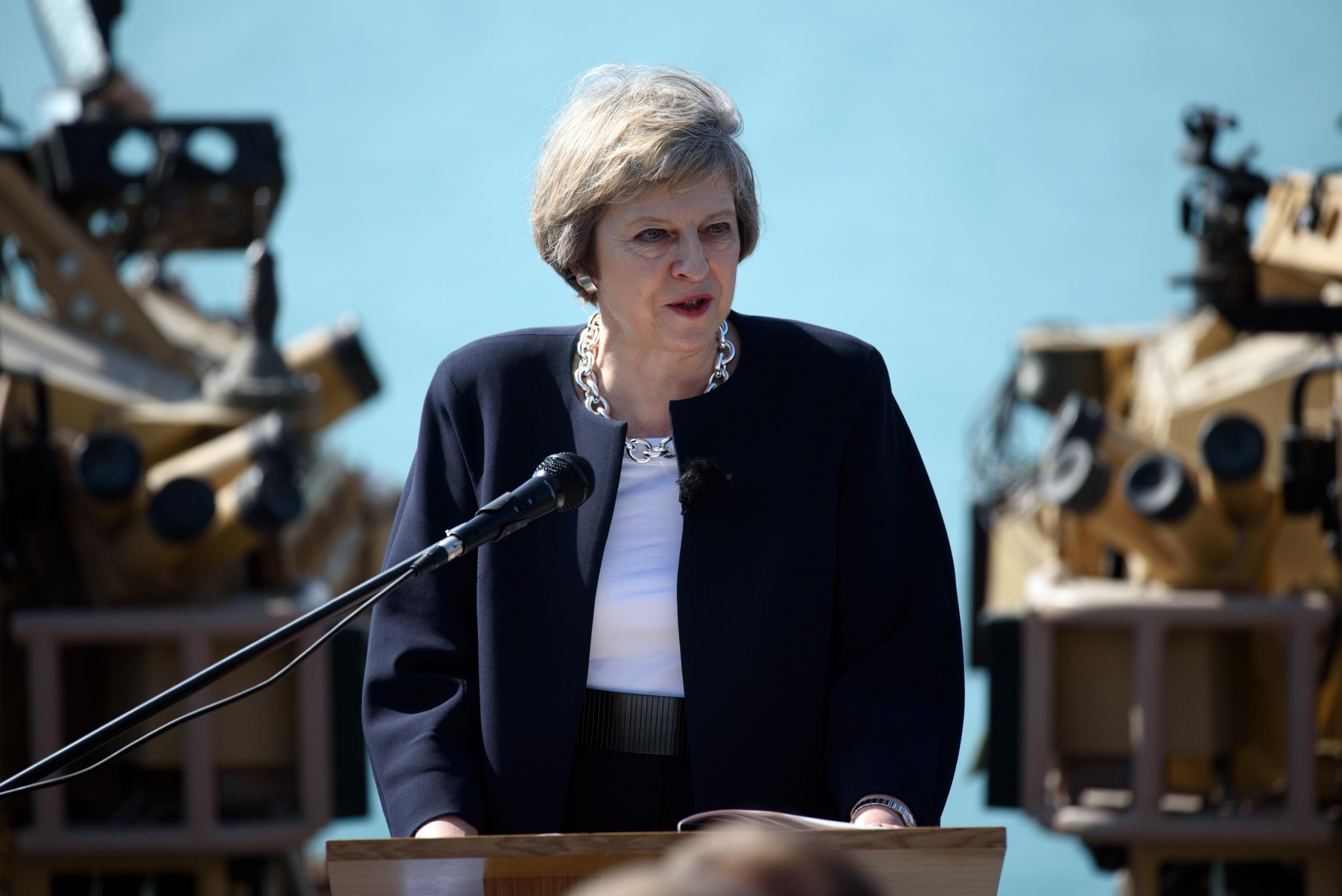Theresa May won't be getting a 'red, white and blue Brexit' – the EU is firmly in control
The UK misreads the EU mood: it will not be able to work around the European Commission and do side deals with some EU prime ministers. With a crisis in Italy and others looming, Brexit may not be top of the leaders’ agenda


Politicians abhor a vacuum, as does the media. So Theresa May can hardly complain when MPs in all parties gang up to demand some detail of her long-awaited “plan for Brexit”, or when every utterance from ministers about Brexit is magnified and overanalysed by the media. The naturally cautious Prime Minister has been too cautious for her own good; she has been forced to make grudging mini-concessions, instead of taking the initiative.
Her promise to publish her Government’s “plan for leaving the EU” was dragged out of her by Labour, and made only to avoid an embarrassing Commons defeat on Wednesday. But I suspect the plan, when it emerges, will be wafer-thin, and fail to satisfy political or media appetites.
“When you play a two-year game of poker, you don’t show your hand at the start,” comes the cry from ministers. But MPs and the media are not asking for that – only for a few clues about the Government’s objectives. We are witnessing an awkward holding operation, while ministers struggle to work out what to aim for. But even if May knew what she wanted, I doubt she would tell us much, as we will soon discover.
Naturally, most of the commentary on Brexit looks at the mother of all negotiations through London’s end of the telescope. This week I have been talking to officials in Brussels to get the view from the other end. It is already clear that the May’s hopes to divide and rule are going to be dashed. The 27 have been remarkably united in refusing “talks about talks” before the formal negotiations, scuppering the Prime Minister’s scoping exercise. Her allies said she would not repeat David Cameron’s mistake by putting all her eggs in Angela Merkel’s basket. But May seems to be risking just that. In Berlin last month, she made a ham-fisted attempt to persuade Merkel to make a joint announcement that the rights of Brits now living in Germany and Germans in the UK would be protected. The idea was to create a positive atmosphere. But it was never going to happen, since the German Chancellor would not break EU ranks by having pre-negotiations. May’s move played very badly in Berlin and other capitals.
Yet I am not sure that May has got the message. Ministers still talk of Merkel being the UK’s greatest ally when the negotiations reach their climax after the German elections next autumn. Again, the UK misreads the EU mood: it will not be able to work around the European Commission and do side deals with some EU premiers. With a crisis in Italy and others looming, Brexit may not be top of the leaders’ agenda, leaving the Commission to do the heavy lifting. Another problem for the UK is that the European Parliament must approve the Brexit deal and will want to put its stamp on it.
The resolve of the EU27 to put on a united front was illustrated when Michel Barnier, the EU’s chief negotiator, held his first press conference in Brussels on Tuesday. He gave Downing Street a foretaste of the UK’s relative weakness by announcing that a deal would have to be done by October 2019, five months earlier than No 10 had expected. Once negotiations begin, the EU will be firmly in the driving seat. Its patience with Britain is running thin; EU leaders feel they went the extra mile for Cameron during his renegotiation (he would disagree) and that he still blew an unnecessary referendum called for internal party reasons. Brussels officials already describe Britain as a “third country”, a reminder that it cannot be half-in and half-out of the EU.
The mindset of UK ministers is that they enter the talks on equal terms. But in Brussels, the endgame is already clear. “The UK will end up with a worse arrangement than it has now,” one official told me. Anything else would play into the hands of populist Europhobes in other EU countries. “It’s not about punishing the UK; it’s just reality,” said another source. Agreement among the 27 has been easy to forge; national leaders are either weak, and desperate to hold back the populist tide, or strong, like Merkel, and prepared to put political commitment to the threatened EU project above short-term economic interests like selling goods to Britain.
May’s laughable soundbite about a “red, white and blue Brexit” will be impossible to achieve. For domestic consumption, she might – like John Major after the Maastricht Treaty talks – claim “game, set and match” for Britain. But the best she can hope for is a messy draw.

Join our commenting forum
Join thought-provoking conversations, follow other Independent readers and see their replies